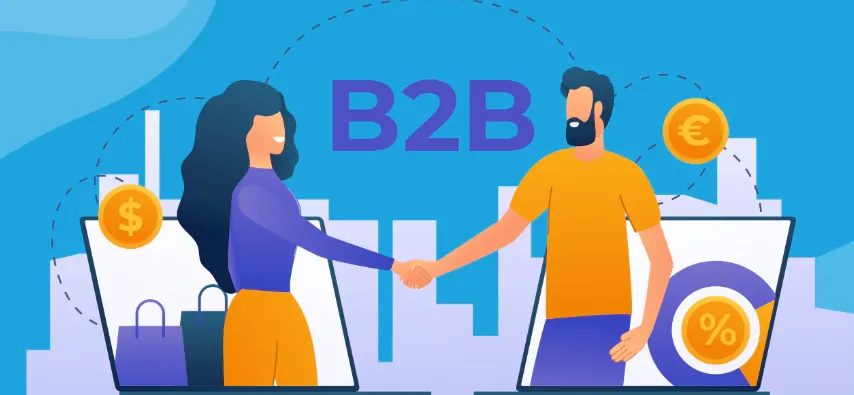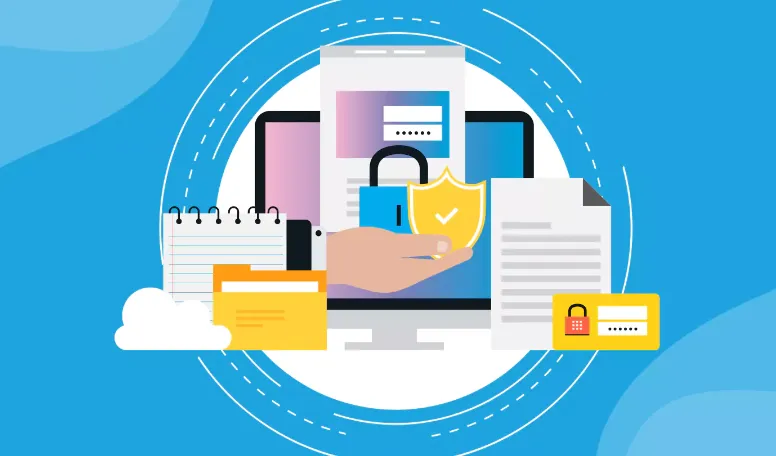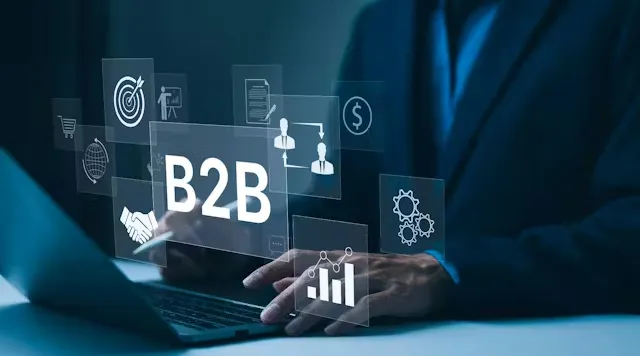Small Business B2B Procurement Services: A Guide to Outsourcing and ESG

This is the universal small business procurement dilemma: your time and resources are finite, but the complexity of buying goods and services is not. This guide cuts through that complexity. We’re not just explaining what B2B procurement is; we’re providing a clear, actionable framework to help you decide whether to build this function internally, outsource it to experts, or leverage technology—and how to embed sustainable practices from the start.

Most guides on B2B procurement are written for large corporations with dedicated teams and million-dollar budgets. For an SMB, the reality is fundamentally different. Your challenges are unique:
The Expertise Gap: You can’t afford a Chief Procurement Officer, but you desperately need strategic sourcing skills to avoid overpaying or selecting unreliable partners.
The Volume Dilemma: Your order volumes may not grant you the bulk discounts that large enterprises command, putting you at a permanent cost disadvantage.
The Compliance Blind Spot: Are your suppliers ethically sound? Are they compliant with evolving environmental (E), social (S), and governance (G) regulations? For a small team, conducting this due diligence is nearly impossible, yet the reputational and financial risks are very real.
The Time Sink: The hours you spend manually sourcing, vetting, and negotiating with suppliers are hours taken from growing your core business. The opportunity cost is immense.
Understanding these unique pressures is the first step toward building a procurement function that doesn't just function—it excels.
When we talk about "B2B procurement services," we're not talking about a simple order-placing service. Think of a professional procurement agent as an extension of your team, a strategic partner that handles the entire supply chain lifecycle. Their core services include:
Strategic Sourcing & Supplier Identification: They don’t just use Google. They leverage global networks and market intelligence to find suppliers you wouldn't find on your own, often in cost-competitive or specialist regions.
Negotiation & Contract Management: This is where they earn their keep. They understand total cost models (not just unit price) and negotiate terms that protect you, including quality SLAs, payment terms, and liability clauses.
Supplier Diversity & ESG Compliance Vetting: A professional service will systematically evaluate potential suppliers against ESG criteria. This isn't just a "nice-to-have"; it's a critical risk mitigation and value-creation strategy. They ensure your supply chain is resilient, ethical, and aligned with modern consumer and investor expectations.
Process Automation & Spend Analytics: They implement and manage procurement platforms that give you visibility into where every dollar is going, identifying savings opportunities and streamlining approvals.
This is the most critical decision you'll make. There is no one-size-fits-all answer, but your company's profile strongly points to the optimal path. Here’s a breakdown of your three primary options:

Option 1: The DIY In-House Team
Best for: Companies with predictable, low-complexity purchasing needs and someone on staff with the bandwidth and skill to manage it.
The Reality: This often becomes an "unowned" task that falls to an already busy operations or finance manager. Without dedicated expertise, you miss out on strategic savings and risk-making costly errors in supplier selection.
Option 2: Outsourcing to a B2B Procurement Service or Agent
Best for: The vast majority of small businesses. This is your secret weapon. If you have growing or complex spend, lack internal expertise, and need to focus on your core product or service, outsourcing is the most efficient and effective path.
The Reality: You gain immediate access to expert knowledge and negotiating power. You turn a fixed, hard-to-manage cost center (salaries) into a variable, performance-driven expense. The best agents operate on a gain-share model, meaning their success is tied to your savings.
Option 3: Adopting a B2B Procurement Platform/Software
Best for: Companies that have already established basic procurement processes and need to scale them efficiently. The software automates ordering and approvals but does not provide the strategic sourcing brainpower.
The Reality: A platform is a tool, not a strategy. It excels at enforcing spending policies and creating visibility but will not find you new, better, or cheaper suppliers on its own.
Your Decision Framework:
Ask yourself these questions:
Is our annual spend on goods and services significant (>$500k) and complex? (Yes => Lean towards a Service)
Do we have an employee with the dedicated time and skill to manage this strategically? (No => Lean towards a Service or Platform)
Is managing ESG/sustainability in our supply chain a priority or compliance requirement? (Yes => A Service is almost certainly required)
Is our primary need to control internal spending and automate approvals? (Yes => A Platform may be a good start).
If you answered "yes" to questions 1 or 3, a procurement service is your most powerful option.
Implementing a sustainable procurement strategy isn't about idealism; it's about long-term business resilience. Here’s how to do it, whether you're working internally or with an agent.

Step 1: Internal Audit & Goal Setting
Conduct a spend analysis. Where is your money going? Then, set SMART goals. Example: "Within 18 months, 30% of our active suppliers will be certified against our new ESG scorecard, and we will reduce single-use plastic in our packaging by 50%."
Step 2: Develop a Supplier Code of Conduct
Document your non-negotiables. This should cover environmental practices (waste management, carbon emissions), social responsibility (labor standards, diversity & inclusion), and governance (anti-bribery, ethics).
Step 3: Integrate ESG into Supplier Evaluation
This is the core of implementation. Move beyond cost and quality. Create a supplier scorecard that includes:
Environmental: Do they have an environmental management system? Can they report on their carbon footprint?
Social: Can they demonstrate fair wages and safe working conditions in their facilities?
Governance: Are they transparent about their ownership and business practices?
Step 4: Execute with Your Partner
If you're using a procurement agent, this is where they take the lead. They will use your scorecard to screen new suppliers and conduct audits on existing ones. If you're internal, you must systematically apply these criteria to all new sourcing events.
Step 5: Monitor, Report, and Optimize
Track your progress with clear KPIs. Key metrics include:
% of Spend with ESG-Compliant Suppliers
Carbon Footprint Reduction in the Supply Chain
Supplier Diversity Spend (e.g., % with minority/women-owned businesses)
Number of Supplier Audit Non-Conformances
Regular reporting keeps you accountable and allows you to tell a powerful story to your customers and investors.

Not all procurement services are created equal. You need a partner, not just a vendor. Use this checklist during your selection process:
Proven SMB Experience: "Can you provide 2-3 case studies from businesses of our size and in our industry?" Look for tangible results—specific savings percentages or process improvements.
Sustainable Sourcing Capabilities: "Walk me through your process for vetting a supplier's ESG credentials. Can you share a sample of your supplier assessment questionnaire?" Their answer should be detailed and methodology-driven.
Technology & Transparency: "What kind of reporting and spend analytics platform do you provide? Can I see a sample dashboard?" You need real-time visibility, not just a monthly PDF report.
Fee Structure Alignment: "Is your pricing model transparent? Do you work on a gain-share basis tied to the savings you deliver?" This aligns their incentives directly with your success.
Cultural Fit & Communication: "Who will be our day-to-day contact? What are your standard response times?" You are entering a close partnership; you need to feel confident in their reliability and communication style.
The knowledge is now yours. It's time to take action. Here is your simple, three-step roadmap:
Conduct a Quick Self-Assessment: Use the decision framework above to solidify your direction. For most SMBs, this will point toward exploring specialized procurement services.
Develop a Shortlist: Based on the vetting checklist, identify 2-3 potential procurement service partners. Look for those who speak credibly about both cost savings and sustainable, ethical sourcing.
Start a Conversation: Reach out for initial consultations. A good partner will ask insightful questions about your business goals and challenges, not just immediately push a generic service package.
You’ve got questions. We get it. Deciding to work with a procurement partner is a big step, and it’s normal to have a few concerns. We're here to clear things up.
Here are the answers to some of the most common questions we receive.
1. Q: How long does it typically take to onboard with a procurement service and start seeing results?
A: To be honest, you shouldn't expect magic overnight, but you also shouldn't wait for months. A typical onboarding process—where we learn your business, analyze your spend, and integrate with your systems—takes about 2-4 weeks. You'll often see "quick-win" savings within the first 30-60 days on easily negotiable items, while more complex, strategic sourcing projects can take 3-6 months to fully optimize.
2. Q: What if we already have some suppliers we love? Are we forced to replace them?
A: Here’s the thing: our goal is to optimize your supply chain, not to tear down what’s already working. We will always start by conducting a thorough review of your existing supplier relationships. If a current partner is performing well on cost, quality, and reliability, we’ll advocate to keep them. Our role is to validate their performance, not automatically replace them.
3. Q: We're in a very niche industry. How can you be sure you understand our specific needs?
A: This is a fantastic question. While we may not be experts in your specific product on day one, we are absolute experts in the process of procurement and supply chain management. In other words, we know how to find, vet, and negotiate with suppliers, regardless of the industry. We become students of your business, quickly immersing ourselves in your industry's landscape to find the best partners for you.
4. Q: How do you handle confidential information, like our product designs or financial data?
A: Your confidentiality is non-negotiable. Any reputable procurement partner will have a robust Non-Disclosure Agreement (NDA) in place before you share a single document. Furthermore, we recommend you ask about their data security protocols. We, for instance, use secure, encrypted platforms for all file sharing and communication to ensure your intellectual property remains yours alone.
5. Q: Is this service only for product-based businesses, or can service-based companies benefit too?
A: A common misconception! While we do a lot of work with companies that source physical goods, service-based businesses have a "services procurement" need. This includes everything from sourcing IT and marketing agencies to facility management and consulting services. The principles of strategic negotiation, vendor management, and contract review apply perfectly there, too.
6. Q: What happens if there’s a problem with a supplier you recommended? Who handles it?
A: We do. One of the biggest values of having an agent is that we act as your dedicated liaison. If there’s a quality delay, or a shipping issue, you come to us. We leverage our relationship with the supplier to resolve the problem quickly on your behalf, saving you the stress and time of dealing with the conflict directly.
7. Q: Do you work with businesses that have very low annual spend?
A: To be frank, there is often a minimum spend level for our engagement to be financially viable for both of us, as our impact is tied to the volume we manage. However, "low" is relative. We’ve worked with startups and SMBs with annual spends as low as $250,000 where we identified significant waste. The best way to find out is to have a quick, no-obligation conversation about your numbers.
8. Q: How is your performance measured beyond cost savings?
A: Cost savings is the most visible metric, but it's not the only one. We also track and report on key performance indicators (KPIs) like procurement cycle time (how fast you get what you need), supplier performance scorecards (quality and on-time delivery), and process efficiency gains (how much of your team's time we've freed up). These all contribute to your bottom line.
9. Q: Can you help us if our main goal is to find local suppliers, not international ones?
A: Absolutely. Our role is to execute your strategy. If your priority is to build a local, resilient supply chain to reduce shipping emissions or support your community, that becomes our primary sourcing criteria. We have the tools to find and vet high-quality local and domestic suppliers just as effectively as international ones.
10. Q: What’s the one thing most businesses are surprised by after they start working with you?
A: Many leaders are surprised by the sense of relief and regained control. They expect to save money, but they don't always anticipate the sheer mental bandwidth they get back. Suddenly, they're not worrying about supplier drama or scrambling for last-minute purchases. They have a clear dashboard and a expert team managing it all, which allows them to sleep better at night and focus on growth.
Contact us
Call Us: +86 193 7668 8822
Email:[email protected]
Add: Building B, No.2, He Er Er Road, Dawangshan Community, Shajing Street, Bao'an District, Shenzhen, China